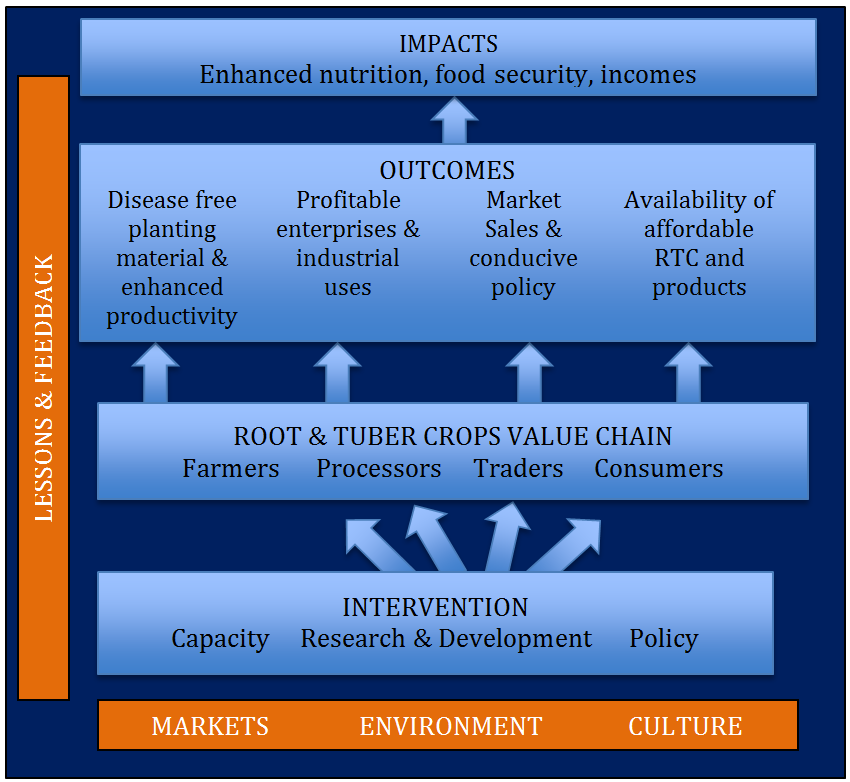Goal: What will the programme contribute to addressing the development challenge?
The NRI Root and Tubers Programme is working with partners worldwide to help ensure that these crops contribute to food security, improved nutrition and incomes.
Root and tuber crops need to respond to growing markets and urbanisation in developing countries, opportunities for enterprise development, industrial uses of root and tuber crops, including biofuel and plan for climate change. The private sector is a key partner for wide-scale uptake and application of knowledge, information and technology relating to RTCs.
Our approach to support root and tuber crop development includes private sector actors in the effort to create sustainable value chains which benefit smallholder farmers and consumers and support viable trade and processing enterprises. This ambitious aim requires attention to be given to all stages of root and tuber crop value chains (single or multiple stages) and consider viable markets. It entails market analysis, developing market linkages, ensuring gender inclusion in value chain development, taking account of cultural factors influencing decision making and the economic viability of proposed developments. It also requires the building of capacity in production, processing, storage and industrial uses of these crops and informing policy decision makers on key actions which could promote root and tuber crops development. Monitoring, evaluation and learning approaches are essential for understanding and building on success.
This will be achieved through the following objectives:
- To develop root and tuber crops at all stages in the value chain (single or multiple stages) and consider viable markets.
- To enhance the contribution of root and tuber crops to improved nutrition, food security and incomes through capacity building, policy and research and development interventions.
NRI has been actively involved in root and tuber crops for over 50 years and the Root and Tuber Crops in Development Programme Leader, Professor Keith Tomlins, is currently serving as President of the International Society for Tropical Root Crops (ISTRC).
Programme 'Theory of Change': - how will the programme activities, outputs and outcomes lead to delivery of the goal?

Overall Strategy:
The programme undertakes a range of project activities that operate at entire length of value chain and involve capacity building, research and development and policy.
Key themes or outputs:
- Development of strategies for root and tuber crops development which are economically beneficial, environmental, culturally and socially appropriate and gender sensitive.
- Capacity building in root and tuber crops research and development among national researchers and key stakeholders in the agricultural sector
- Strengthening capacity for improved productivity and efficiency in RCP production.
- Development and promotion of appropriate processing technologies together with business models and marketing strategies.
- Diagnostic methods and management strategies for use at all stages of seed multiplication to enable the provision of virus-free seed of existing and new, beneficial varieties to meet a range of consumer demands.
- Monitoring and evaluation and learning to understand how RCT research and development can reach target beneficiaries and to assess the outcomes and developmental impacts.

